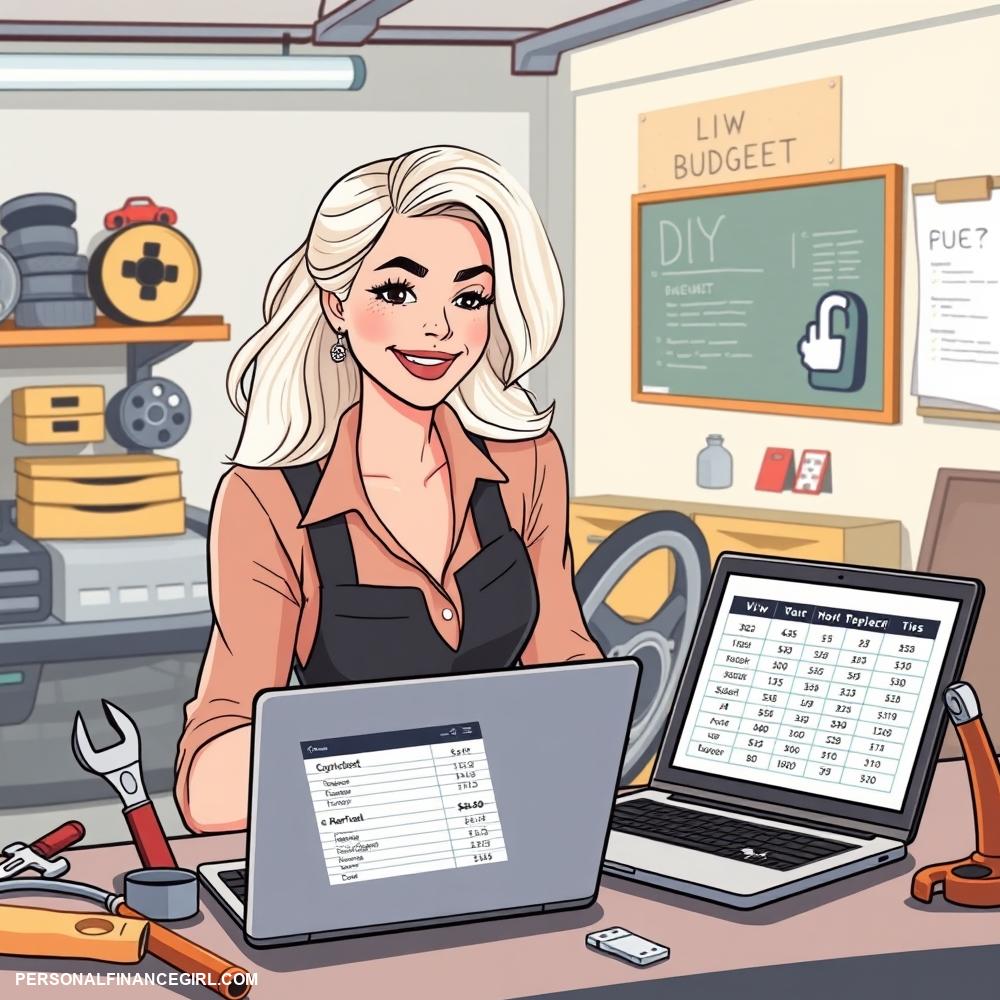How to Save Money on Car Repairs: Proven Tips for Women to Cut Costs and Keep Rolling
The open road, freedom and adventure all at your fingertips – or so it seems. But let’s be real, the harsh reality of car ownership is that it’s not all sunshine and rainbows. Car repairs can be a major financial burden, throwing a wrench into even the most carefully crafted budgets.
Whether it’s a sudden breakdown or a slow leak of cash, car troubles can leave you feeling stuck and stressed. But fear not, fellow drivers! With a few simple tips and tricks, you can save big bucks on car repairs and get back to the open road without breaking the bank.

Understand the Basics of Car Maintenance
Understanding the basics of car maintenance is crucial for saving money on repairs and extending the life of your vehicle. Regular maintenance can prevent minor issues from escalating into costly problems, and knowing how to perform simple tasks can reduce the likelihood of visits to the mechanic.
Start with routine inspections such as checking tire pressure, changing oil, and monitoring fluid levels—these actions can enhance fuel efficiency and optimize performance. Familiarize yourself with your owner’s manual, which provides vital information on maintenance schedules and recommended practices.
Learning how to change a tire, replace windshield wipers, and check battery health can save you time and money in emergencies. Keeping a detailed maintenance log helps track services performed and can increase your car’s resale value down the line.
Ultimately, being proactive about car care not only saves money but also grants you a better understanding of your vehicle, empowering you to make informed decisions that enhance safety and reliability on the road.
Keep Up with Regular Inspections and Tune-ups
One of the most effective strategies for saving money on car repairs is to maintain a regular schedule of inspections and tune-ups. Many car owners often overlook the importance of routine maintenance, which can lead to costly repairs down the road. By investing a little time and money upfront, you can identify minor issues before they escalate into major problems that require expensive fixes.
Regular inspections can catch worn-out brake pads, fluid leaks, or engine problems early, allowing you to address these concerns at a fraction of the cost of emergency repairs. Following the manufacturer’s recommended maintenance schedule for oil changes, filter replacements, and tire rotations not only extends the life of your vehicle but also improves its efficiency and safety. This proactive approach helps you avoid the anxiety and financial strain that often accompanies unexpected breakdowns, ultimately saving you both time and money in the long run. By taking care of your car through consistent maintenance, you not only enhance its performance but also protect your overall financial health.
Learn to Perform Simple Repairs Yourself
One effective way to save money on car repairs is to learn to perform simple repairs yourself. Many minor issues can be tackled with a little time and effort, which not only cuts costs but also empowers you as a car owner.
Start by familiarizing yourself with the basics of automotive maintenance, such as changing the oil, replacing air filters, and rotating tires. These tasks often require minimal tools and can be done at home, saving you the labor costs associated with professional services. Online tutorials and videos are readily available, providing step-by-step guidance.
Additionally, understanding how your car works can help you diagnose problems early, preventing more significant repairs down the road. By equipping yourself with repair skills, you not only keep your vehicle in good condition but also bolster your personal finance strategy by reducing reliance on costly auto shops.
Over time, these small savings can add up significantly, contributing to a healthier budget and greater peace of mind.
Shop Around for Auto Repair Shops and Mechanics
When it comes to saving money on car repairs, one of the most effective strategies is to shop around for auto repair shops and mechanics. Just like any major purchase, it’s crucial to explore your options and compare prices, services, and reputations.
Start by seeking recommendations from friends, family, or online reviews to create a list of potential shops. Don’t hesitate to reach out to several mechanics and request quotes for the repairs you need; this not only gives you a better sense of prevailing prices but also helps you gauge customer service quality.
Inquire about warranties on parts and labor, as reputable shops often stand behind their work with guarantees, adding value and peace of mind to your investment. Additionally, consider local vs. chain repair shops; while national chains may seem convenient, smaller, independent garages often provide personalized service and may offer competitive pricing.
Take Advantage of Warranties and Service Plans
One effective strategy for saving money on car repairs is to take full advantage of warranties and service plans. When you purchase a new or certified pre-owned vehicle, it typically comes with a manufacturer’s warranty that covers specific repairs for a set period or mileage. Understanding the details of this warranty can save you significant costs, as many repairs within this coverage are performed at no charge.
Additionally, extended warranties and service plans can be beneficial, especially for older vehicles or those that are prone to certain issues. These plans often cover routine maintenance, such as oil changes and tire rotations, as well as unexpected repairs, providing peace of mind and financial protection.
It’s essential to read the fine print and understand what is included and excluded from these warranties to make informed decisions about your coverage options. By leveraging warranties and service plans effectively, you can avoid out-of-pocket expenses for repairs that would otherwise strain your budget, contributing to an overall more sustainable approach to managing your vehicle’s maintenance costs.
Use Discount Coupons and Loyalty Programs
Utilizing discount coupons and loyalty programs can significantly reduce the costs associated with car repairs, making them a valuable strategy for anyone looking to save money. Many automotive service providers and parts retailers offer coupons that can be found in local newspapers, online platforms, or even through mailing lists.
By taking the time to check for these discounts before scheduling a repair, car owners can often save a percentage off their total bill or receive special deals on services like oil changes, tire rotations, or brake inspections.
Furthermore, participating in loyalty programs can yield long-term savings, as these programs typically reward customers for repeated business with exclusive discounts, free services, or cash-back offers.
For example, a garage may provide points for every dollar spent, which can be redeemed for future repairs, thereby encouraging repeat visits and fostering customer loyalty.
Consider Alternatives to Traditional Repairs
When it comes to saving money on car repairs, considering alternatives to traditional repair methods can be a game-changer. Many vehicle owners automatically turn to dealerships or well-known mechanics for fixes, but this may not always be the most cost-effective solution. One alternative is to explore independent repair shops, which often provide quality services at a fraction of the cost charged by brand-name garages.
Additionally, seeking out specialists who focus on specific issues can lead to better pricing and more tailored solutions. Another option is to utilize mobile mechanics who come directly to your location, potentially cutting down on labor costs and offering more convenience.
Furthermore, if you possess some mechanical aptitude, tackling minor repairs yourself can yield significant savings. Online resources, including instructional videos and community forums, can provide guidance and support to those willing to take on DIY projects.
Lastly, participating in barter or trade services within your community could resolve car issues without the need for cash, fostering a sense of collaboration and resourcefulness that can greatly benefit your finances.






